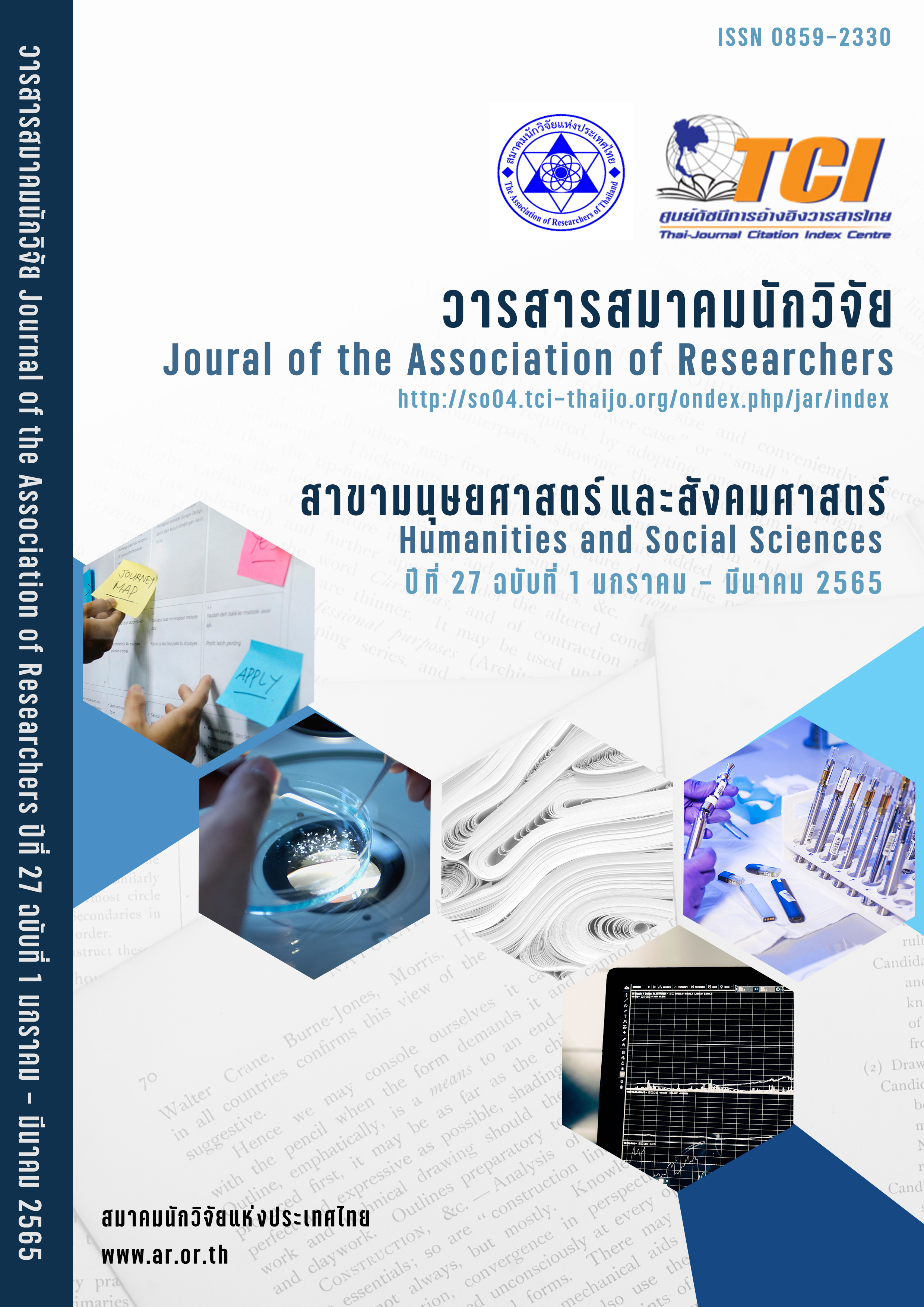The Study of the Development of the Standard school for Elderly
Main Article Content
Abstract
The objectives of this study are aimed at the Development of the Standard school for the Elderly by collecting 75 data samples from the administrators, educators, community leaders, Elderly Related associates, Experts, using SWOT Analysis Likert 5 point scale, Interviews, Form for confirmation of standard drafts, including a questionnaire for educated knowledge and suitability of standard drafts, comments, and proposed policies. with One sample t-Test, frequencies, percentage, average, and S.D. statistical data for conducting the study. The study result has shown as follows 1) For the Elderly Standard School contained 3 dimensions which are elderly quality, elderly learning management and development, elderly educational administration 2) For the 3 dimensions of the Development of School standard, the educational administrators, educators, community leadership associates with elderly and experts, they have mutually agreed upon the appropriateness with the overall of 52 indicators, especially when comparing to the set standard at the .05 significance level 3) For the policy suggestions towards the Elderly School Standard could be categorized into 3 levels (1) Original Affiliation (2) the Elderly School (3) The School Course (academic programs) by the administrators, educators, community leadership associates with elderly and experts must comply and follow the policy suggestion in all 3 levels 2 dimensions and 30 mechanisms.
Article Details

This work is licensed under a Creative Commons Attribution-NonCommercial-NoDerivatives 4.0 International License.
บทความที่ปรากฏในวารสารนี้ เป็นความรับผิดชอบของผู้เขียน ซึ่งสมาคมนักวิจัยไม่จำเป็นต้องเห็นด้วยเสมอไป การนำเสนอผลงานวิจัยและบทความในวารสารนี้ไปเผยแพร่สามารถกระทำได้ โดยระบุแหล่งอ้างอิงจาก "วารสารสมาคมนักวิจัย"
References
Chuearatpong, J. (1996). Curriculum Development: Principles and Practices. Bangkok: Alien press. (in Thai)
Ferguson, George A. (1981). Statistical Analysis in Psychology and Education. 5th ed.Tokyo: McGraw – Hill.
Kongjareon, M. & Boriboon, K. (2019). Development of A Community-Based School Model for The Elderly. Bangkok: Srinakharinwirot University. (in Thai)
Likert, R.A. (1932). Technique for the Measurement of Attitudes. Arch Psychological. 25(140): 1 – 55.
Ministry of Education. (2015). Standard Criteria for Undergraduate Programs 2015. 2020 Oct. Received from https://bit.ly/3s3mK3i.PDF (in Thai)
Nuansakul, N. (2005). Bachelor of Science Program Assessment (Agriculture) Improved Course 1992 of Ubon Ratchathani University. Thesis, Master of Education. Srinakharinwirot University. (in Thai)
Phusara, R. (2008). Curriculum Development: The Educational Reforms. Bangkok: Book Point. (in Thai)
Soonthornwipat, P. (2000). Development of An Educational Quality Assurance System for Military schools. Thesis, Department of Higher Education Chulalongkorn University. (in Thai)
Srinakharinwirot University. (2017). One Day Learning Handbook. Project for enhancing the health and occupational skills of the elderly according to the sufficiency economy Under the Thai Potential Development Project Integrated work plan to develop people's potential according to their ages Fiscal Year 2017. (in Thai)
Stufflebeam, D. L., & Coryn, C. L. S. (2014). Evaluation: Theory, Models, and Applications (2nd eds.). San Francisco: Jossey-Bass.
Stufflebeam, D. L., & Shinkfield, A. J. (1990). Systematic Evaluation. Boston: Kluwer–Nijhoff.
Stufflebeam, D. L. (2008). The CIPP model for evaluation in national conference on educational research 17-18 January 2008. Phitsanulok, Thailand: Faculty of Education Naresuan University.
Thunthanakul, S. (2020). Graduate Program Assessment Faculty of Education Naresuan University. Bangkok: Naresuan University. (in Thai)
World Health Organization. (2002). Active aging: a policy framework. Aging Male. 2002 Mar; 5(1): 1-37.


